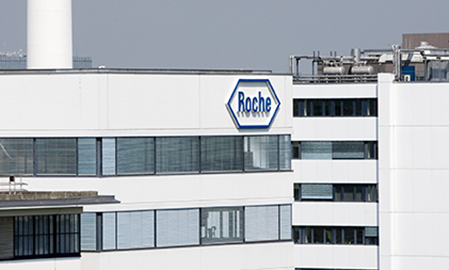The FDA kicked off a series of firsts Friday when it approved Roche’s chronic lymphocytic leukemia (CLL) drug Gazyva: it was the first approved drug with a Breakthrough Therapy designation, and it also gave Roche first place in approvals in a CLL space that includes contenders such as Janssen’s ibrutinib and GlaxoSmithKline, which is seeking an sNDA to make the GSK-GenMab treatment Arzerra a second-line CLL treatment.
Gazyva (obinutuzumab) gives Roche time to build a succession marketing plan for Rituxan, the Roche cancer med which loses patent protection in two years and for which Gazyva is considered a robust follow-on. That means it offers revenue protection behind Rituxan, a key driver of the company’s earnings for the first three quarters of 2013.
The FDA based its approval on a 365-patient clinical trial that showed an average of 23 months of progression-free survival when paired with chlorambucil, compared with 11.1 months on chlorambucil alone.
The new drug will have a boxed warning that it could reactivate hepatitis B. It could also cause progressive multifocal leukoencephalopathy (PML), a rare disorder that chips away at the material that protects the brain’s white matter which allows neurons to communicate.
While boxed warnings are not new for the industry, the timing is of note because it comes a week after JAMA published a study saying that expedited approvals, like those that come with a Breakthrough Therapy designation may need revisiting.
The Oct. 28 article by Thomas Moore and Curt Furberg looked to FDA approvals in 2008 and noted that fast-paced reviews were linked to less robust clinical trials, with a median size of around 104 patients compared to a median of 580 patients, and that expedited drugs were associated with safety concerns in the form of five boxed warnings, eight risk management plans, and 85 post-marketing requirements. Researchers found that concerns continued to build and that by 2013, five such drugs chalked up expanded or new boxed warnings.
The FDA created expedited reviews to help patients without effective or any treatment options get drugs sooner, a risk-benefit calculation that assumes the benefit—medical assistance—outweighs the risk that can come with an expedited approval, albeit one that can come with backstops such as post-marketing studies. Moore and Furberg note that a key concern is that the drugs they studied had many unanswered safety questions and that the post-marketing studies have not materialized.







